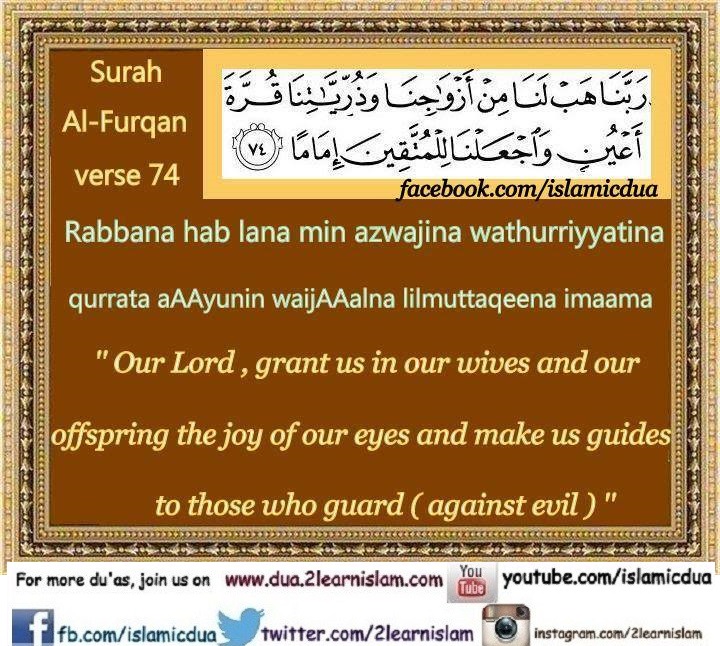Arabic and English translation

English transliteration and translation

I seek refuge in Allah from Satan, the outcast.
أَعُوذُ بِاللهِ مِنَ الشَّيْطَانِ الرَّجِيمِ
‘A ‘oothu bil-laahi minash-Shaytaanir-rajeem
| Transliteration | Arabic | Translation |
‘A ‘oothu
| أَعُوذُ | I seek refuge |
bil-laahi
| بِاللهِ | In Allah |
| minash-Shaytaan | مِنَ الشَّيْطَانِ | From Satan |
| Ar-rajeem | الرَّجِيمِ | The outcast |
| | |
What does Isti`adhah mean?
Isti`adhah means, “I seek refuge with Allah from the cursed Satan so that he is prevented from affecting my religious or worldly affairs, or hindering me from adhering to what I was commanded, or luring me into what I was prohibited from.”
Indeed, only Allah is able to prevent the evil of Satan from touching the son of Adam. This is why Allah allowed us to be lenient and kind with the human devil, so that his soft nature might cause him to refrain from the evil he is indulging in. However, Allah required us to seek refuge with Him from the evil of Satan, because he neither accepts bribes nor does kindness affect him, for he is pure evil. Thus, only He Who created Satan is able to stop his evil.
This meaning is reiterated in three Ayahs in the Qur’an.
Allah said in Surat Al-A`raf,
“And if an evil whisper comes to you from Shaytan, then seek refuge with Allah. Verily, He is Hearing, Knowing” (7: 200).
Click here for the “DUA BOOK” having 120 Beautiful Du’as from the Holy Quran.
Allah also said in Surat Al-Mu’minun:
“Repel evil with that which is better. We are Best-Acquainted with the things they utter. And say: “My Lord! I seek refuge with You from the whisperings (suggestions) of the Shayatin (devils). And I seek refuge with You, My Lord! lest they should come near me.” (23:96-98).
Further, Allah said in Surat As-Sajdah,
“The good deed and the evil deed cannot be equal. Repel (the evil) with one which is better, then verily he, between whom and you there was enmity, (will become) as though he was a close friend. But none is granted it (the above quality) except those who are patient ـ and none is granted it except the owner of the great portion (of happiness in the Hereafter, i.e. Paradise and of a high moral character) in this world. And if an evil whisper from Shaytan tries to turn you away (from doing good), then seek refuge in Allah. Verily, He is the Hearing, the Knowing” (41:34-36).
Allah commanded that we seek refuge from the satanic enemy, because the devil does not relent in his enmity if we treat him with kindness and leniency. The devil only seeks the destruction of the Son of Adam due to the vicious enmity and hatred he has always had towards man’s father, Adam Alaihissalaam.
Allah said,
“O Children of Adam! Let not Shaytan deceive you, as he got your parents Adam and Hawwa’ (Eve) out of Paradise” (7:27)
“Surely, Shaytan is an enemy to you, so take (treat) him as an enemy. He only invites his Hizb (followers) that they may become the dwellers of the blazing Fire” (35:6)
and
“Will you then take him (Iblis) and his offspring as protectors and helpers rather than Me while they are enemies to you. What an evil is the exchange for the Zalimun (polytheists, and wrongdoers, etc)” (18:50)
The devil assured Adam Alaihissalaam that he wanted to advise him, but he was lying. Hence, how would he treat us after he had vowed,
“By Your might, then I will surely, mislead them all. Except Your chosen servants among them (i.e. faithful, obedient, true believers of Islamic Monotheism).” (38:82-83)
Also, Allah said,
“So when you want to recite the Qur’an, seek refuge with Allah from Shaytan, the outcast (the cursed one). Verily, he has no power over those who believe and put their trust only in their Lord (Allah). His power is only over those who obey and follow him (Satan), and those who join partners with Him.” (16:98-100).
Why the Devil is called Shaytan
In the Arabic language, Shaytan is derived from Shatana, which means the far thing. Hence, the Shaytan has a different nature than mankind, and his sinful ways are far away from every type of righteousness. It was also said that Shaytan is derived from Shata, (literally `burned’), because it was created from fire.
Some scholars said that both meanings are correct, although they state that the first meaning is more plausible. Further, Siybawayh (the renowned Arab linguistic) said, “The Arabs say, `So-and-so has Tashaytan,’ when he commits the act of the devils. If Shaytan was derived from Shata, they would have said, Tashayyata (rather than Tashaytan).” Hence, Shaytan is derived from the word that means, far away. This is why they call those who are rebellious (or mischievous) from among the Jinns and mankind as `Shaytan’.
Allah said,
“And so We have appointed for every Prophet enemies ـ Shayatin (devils) among mankind and Jinn, inspiring one another with adorned speech as a delusion (or by way of deception)” (6:112).
In addition, the Musnad by Imam Ahmad records that Abu Dharr said that the Messenger of Allah Sallal laahoo alaihi wassallam said,
“O Abu Dharr! Seek refuge with Allah from the devils of mankind and the Jinns.” Abu Dharr said, “I asked him , `Are there human devils’ He said, Yes.”
The Meaning of Ar-Rajim
Ar-Rajim means, being expelled from all types of righteousness.
Allah said,
“And indeed We have adorned the nearest heaven with lamps, and We have made such lamps Rujuman (as missiles) to drive away the Shayatin (devils)” (67:5).
Allah also said,
“Verily, We have adorned the near heaven with the stars (for beauty). And to guard against every rebellious devil. They cannot listen to the higher group (angels) for they are pelted from every side. Outcast, and theirs is a constant (or painful) torment. Except such as snatch away something by stealing, and they are pursued by a flaming fire of piercing brightness” (37:6-10).
Further, Allah said,
“And indeed, We have put the big stars in the heaven and We beautified it for the beholders. And We have guarded it (near heaven) from every Shaytan Rajim (outcast Shaytan). Except him (devil) who steals the hearing then he is pursued by a clear flaming fire.” (15:16-18).
There are several similar Ayahs. It was also said that Rajim means, the person who throws or bombards things, because the devil throws doubts and evil thoughts in people’s hearts. The first meaning is more popular and accurate.
Is the Isti`adhah (seeking Refuge) required?
The majority of the scholars state that reciting the Isti`adhah (in the prayer and when reciting the Qur’an) is recommended and not required, and therefore, not reciting it does not constitute a sin. However, Ar-Razi recorded that `Ata’ bin Abi Rabah said that the Isti`adhah is required in the prayer and when one reads the Qur’an.
In support of `Ata’s statement, Ar-Razi relied upon the apparent meaning of the Ayah,
(Then seek refuge.) He said that the Ayah contains a command that requires implementation.
Also, the Prophet Sallal laahoo alaihi wassallam always said the Isti`adhah.
In addition, the Isti`adhah wards off the evil of Satan, which is necessary, the rule is that the means needed to implement a requirement of the religion is itself also required. And when one says, “I seek refuge with Allah from the cursed devil.” Then this will suffice.
Virtues of the Isti`adhah
The Isti`adhah cleanses the mouth from the foul speech that it has indulged in. It also purifies the mouth and prepares it to recite the speech of Allah. Further, the Isti`adhah entails seeking Allah’s help and acknowledging His ability to do everything. The Isti`adhah also affirms the servant’s meekness, weakness and inability to face the enemy of his inner evil, whom Allah alone, Who created this enemy, is able to repel and defeat. This enemy does not accept kindness, unlike the human enemy.
There are three Ayahs in the Qur’an that affirm this fact.
Also, Allah said,
“Verily, My servants (i.e. the true believers of Islamic Monotheism) ـ you have no authority over them. And sufficient is your Lord as a Guardian.” (17:65).
We should state here that the believers, whom the human enemies kill, become martyrs, while those who fall victim to the inner enemy – Satan – become bandits. Further, the believers who are defeated by the apparent enemy – disbelievers – gain a reward, while those defeated by the inner enemy earn a sin and become misguided. Since Satan sees man where man cannot see him, it is befitting that the believers seek refuge from Satan with Whom Satan cannot see. The Isti`adhah is a form of drawing closer to Allah and seeking refuge with Him from the evil of every evil creature.
Seeking Refuge before reciting the Qur’an
Allah said,
“So when you want to recite the Qur’an, seek refuge with Allah from Shaytan, the outcast (the cursed one)”
Similarly, Allah said,
“When you intend to offer As-Salah (the prayer), wash your faces and your hands (forearms)” (5:6) meaning, before you stand in prayer.
Imam Ahmad recorded that Abu Sa`id Al-Khudri said, “When the Messenger of Allah Sallal laahoo alaihi wassallam would stand up in prayer at night, he would start his prayer with the Takbir (saying “Allahu Akbar”; Allah is the Greatest) and would then supplicate,
“All praise is due to You, O Allah, and also the thanks. Blessed be Your Name, Exalted be Your sovereignty, and there is no deity worthy of worship except You.”
He would then say thrice,
“There is no deity worthy of worship except Allah”
He would then say,
“I seek refuge with Allah, the Hearing, the Knowing, from the cursed Satan, from his coercion, lures to arrogance and poems.”
The four collectors of the Sunan recorded this Hadith, which At-Tirmidhi considered the most famous Hadith on this subject.
Abu Dawud and Ibn Majah recorded that Jubayr bin Mut`im said that his father said, “When the Messenger of Allah Sallal laahoo alaihi wassallam started the prayer, he said,
“Allah is the Greatest, truly the Greatest (thrice); all praise is due to Allah always (thrice); and all praise is due to Allah day and night (thrice). O Allah! I seek refuge with You from the cursed Satan, from his Hamz, Nafkh and Nafth.”
Also, Ibn Majah recorded this. He said, “The Hamz means death, the Nafkh means arrogance, and the Nafth means poetry.”
Seeking Refuge with Allah when One is Angry
In his Musnad, Al-Hafiz Abu Ya`la Ahmad bin `Ali bin Al-Muthanna Al-Mawsili reported that Ubayy bin Ka`b said, “Two men disputed with each other in the presence of the Messenger of Allah Sallal laahoo alaihi wassallam and the nose of one of them became swollen because of extreme anger.
The Messenger of Allah Sallal laahoo alaihi wassallam said,
“I know of some words that if he said them, what he feels will go away, ‘I seek refuge with Allah from the cursed Satan.”
There are many other Hadiths about seeking refuge with Allah. One can find this subject in the books on supplication and the virtues of righteous, good deeds.



















